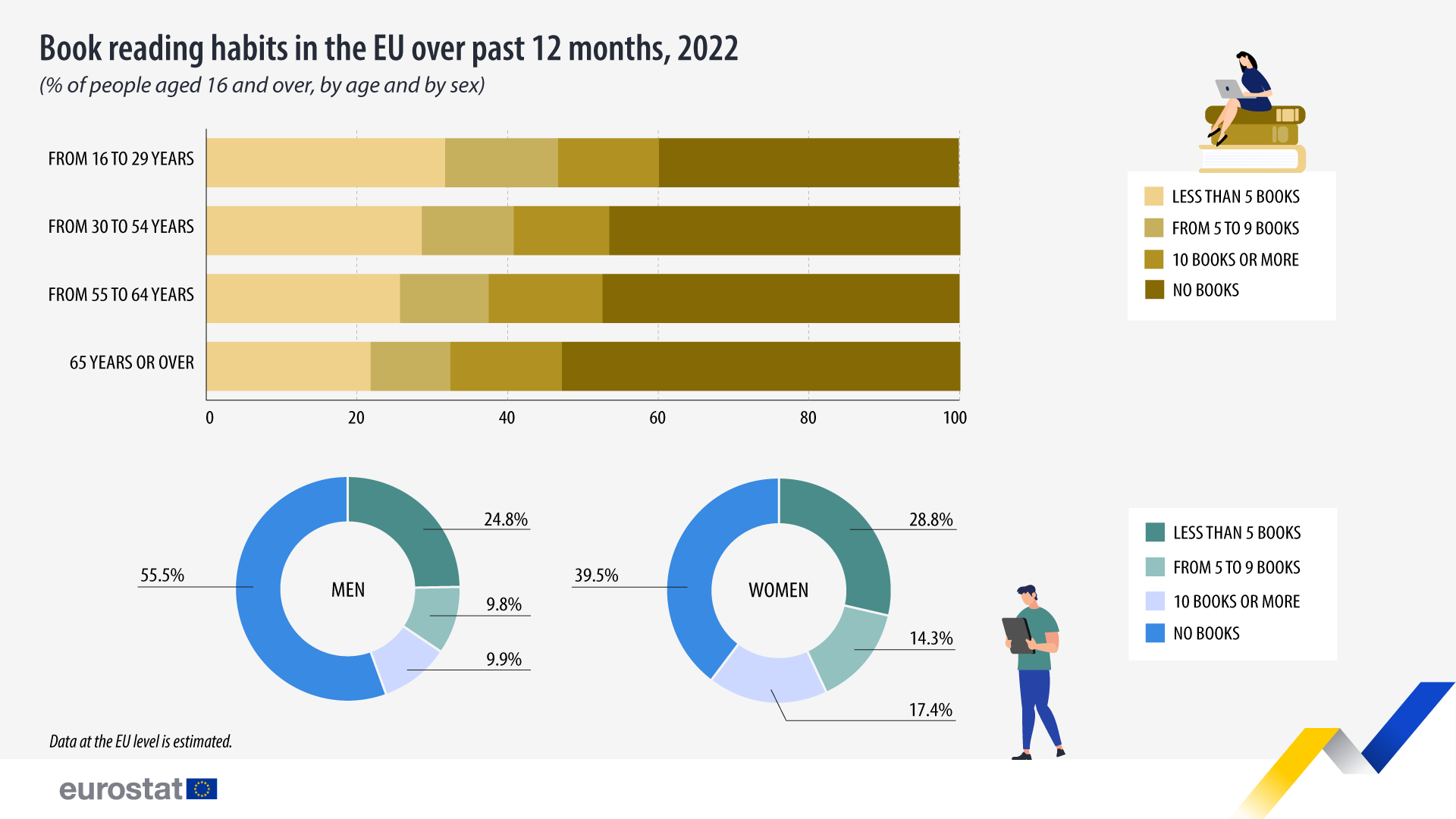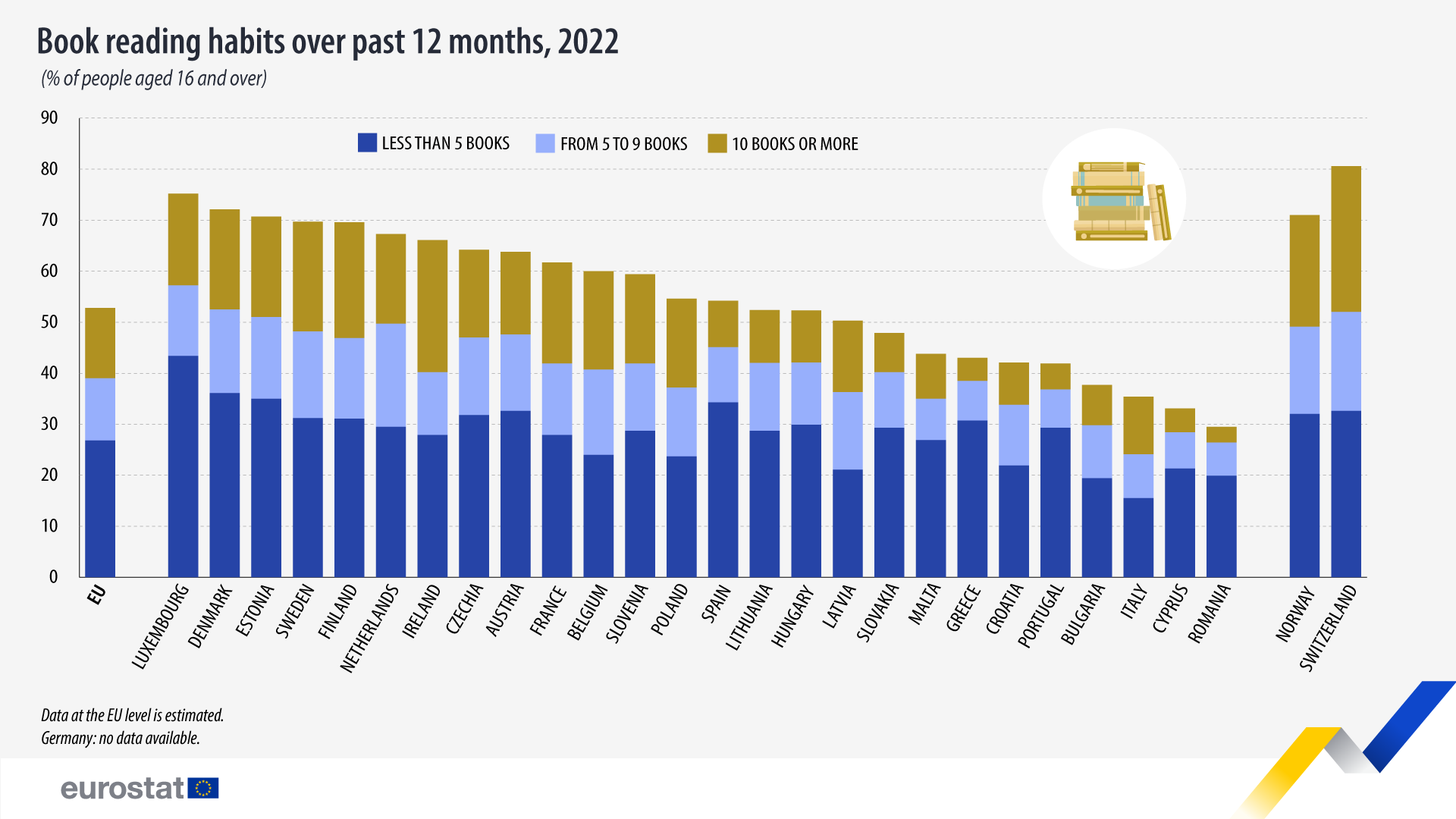Younger people and women in the EU read more books

In 2022, according to EU statistics on income and living conditions (EU-SILC), 52.8% of the EU population aged 16 years or over reported reading books in the past 12 months.
The youngest group, aged 16-29, read more (60.1%) compared with those aged 30 to 54 (53.5%), 55 to 64 (52.6%) and 65 years and older (47.2%).
More women in the EU read books (60.5%) than men (44.5%). The same pattern was observed when looking at the number of books read: 28.8% of women and 24.8% of men read fewer than 5 books, 14.3% of women and 9.8% of men read 5-9 books, while 17.4% of women and 9.9% of men read 10 or more books.
Source dataset: ilc_scp27
Share of people reading books highest in Luxembourg, Denmark and Estonia
Among EU countries, Luxembourg reported the highest share of people who had read books in the 12 months prior to the survey (75.2%), followed by Denmark (72.1%) and Estonia (70.7%).
In contrast, in Romania, only 29.5% of people had read books in the 12 months prior to the survey, 33.1% in Cyprus and 35.4% in Italy.
Source dataset: ilc_scp27
This news article marks international Book Lovers Day, celebrated on 9 August 2024.
For more information
- Statistics explained on Living conditions in Europe – life satisfaction and quality of life
- Thematic section on income and living conditions
- Database on income and living conditions
Methodological notes
- Data at EU level is estimated.
- Germany: no data available.
- The EU-SILC data used in this article considers the number of books that the respondent has read, including e-books or audio books but excluding podcasts, during the last 12 months. All types of books are to be counted (historical, scientific, poetry, novels, etc.) except schoolbooks or manuals for work.
If you have any queries, please visit our contact us page.


